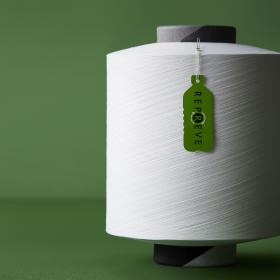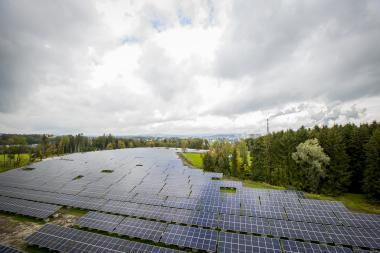Hologenix and UNIFI® announce partnership
Hologenix, creators of CELLIANT®, and global textile solutions provider UNIFI®, makers of REPREVE®, have announced their partnership to introduce CELLIANT® with REPREVE®. CELLIANT with REPREVE has the infrared properties of science-backed CELLIANT infrared technology and the sustainable footprint of REPREVE, a brand of recycled fiber.
CELLIANT is a blend of IR-generating bioceramic minerals, which, when embedded into textiles, allows them to convert body heat into infrared energy, returning it to the body and temporarily increasing local circulation and cellular oxygenation. This aids significantly in muscle recovery, increases endurance, and improves overall performance in healthy individuals, among other benefits.
REPREVE recycled performance fiber consists of high-quality fibers made from 100% recycled materials, including post-consumer plastic bottles and pre-consumer waste. It is also certified and traceable with U TRUST® verification and FiberPrint™ technology, to back up customers' recycled claims. Compared to virgin fiber, REPREVE helps to offset the use of petroleum, emitting fewer greenhouse gasses and conserving water and energy in the process.
CELLIANT with REPREVE’s official preferred North America knitting partner is Beverly Knits, one of the largest circular knitters in the US, developing fabric for all markets including intimate apparel, activewear, outdoor products, mattress and bedding, automotive, industrial and medical. Beverly Knits also operates Creative Dyeing & Finishing, LLC.
Hologenix































